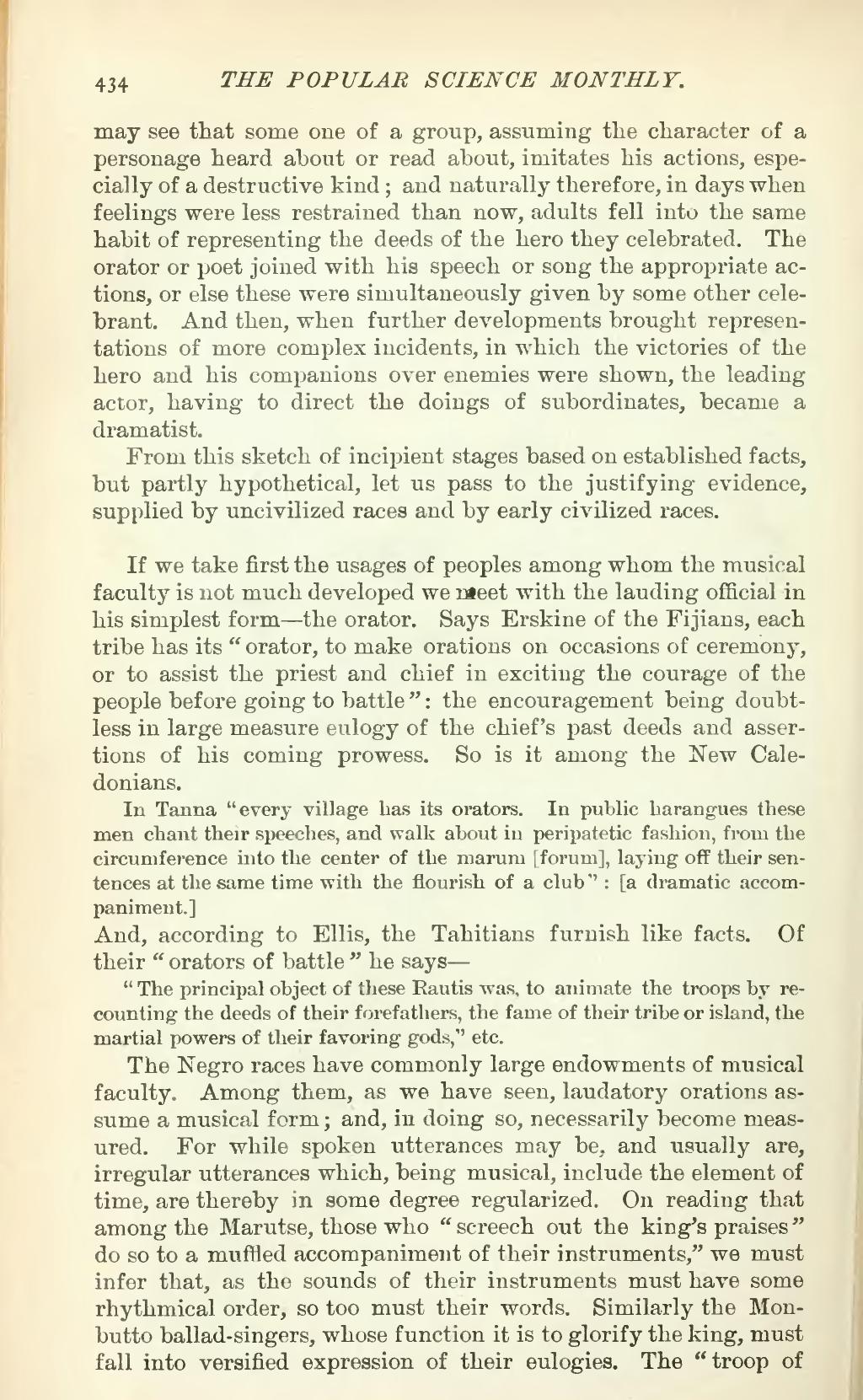may see that some one of a group, assuming the character of a personage heard about or read about, imitates his actions, especially of a destructive kind; and naturally therefore, in days when feelings were less restrained than now, adults fell into the same habit of representing the deeds of the hero they celebrated. The orator or poet joined with his speech or song the appropriate actions, or else these were simultaneously given by some other celebrant. And then, when further developments brought representations of more complex incidents, in which the victories of the hero and his companions over enemies were shown, the leading actor, having to direct the doings of subordinates, became a dramatist.
From this sketch of incipient stages based on established facts, but partly hypothetical, let us pass to the justifying evidence, supplied by uncivilized races and by early civilized races.
If we take first the usages of peoples among whom the musical faculty is not much developed we meet with the lauding official in his simplest form—the orator. Says Erskine of the Fijians, each tribe has its "orator, to make orations on occasions of ceremony, or to assist the priest and chief in exciting the courage of the people before going to battle": the encouragement being doubtless in large measure eulogy of the chief's past deeds and assertions of his coming prowess. So is it among the New Caledonians.
And, according to Ellis, the Tahitians furnish like facts. Of their "orators of battle" he says—
The Negro races have commonly large endowments of musical faculty. Among them, as we have seen, laudatory orations assume a musical form; and, in doing so, necessarily become measured. For while spoken utterances may be, and usually are, irregular utterances which, being musical, include the element of time, are thereby in some degree regularized. On reading that among the Marutse, those who "screech out the king's praises" do so to a muffled accompaniment of their instruments," we must infer that, as the sounds of their instruments must have some rhythmical order, so too must their words. Similarly the Monbutto ballad-singers, whose function it is to glorify the king, must fall into versified expression of their eulogies. The "troop of

